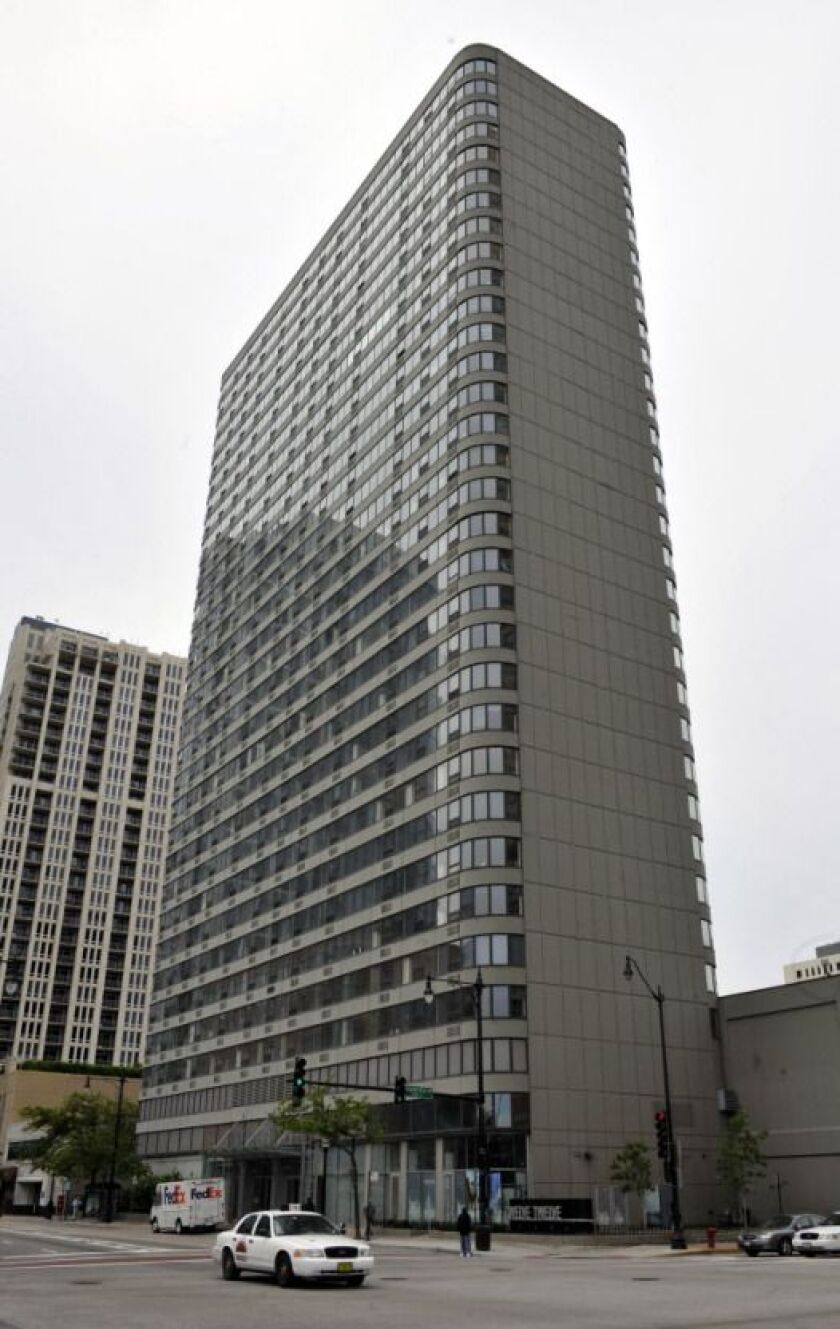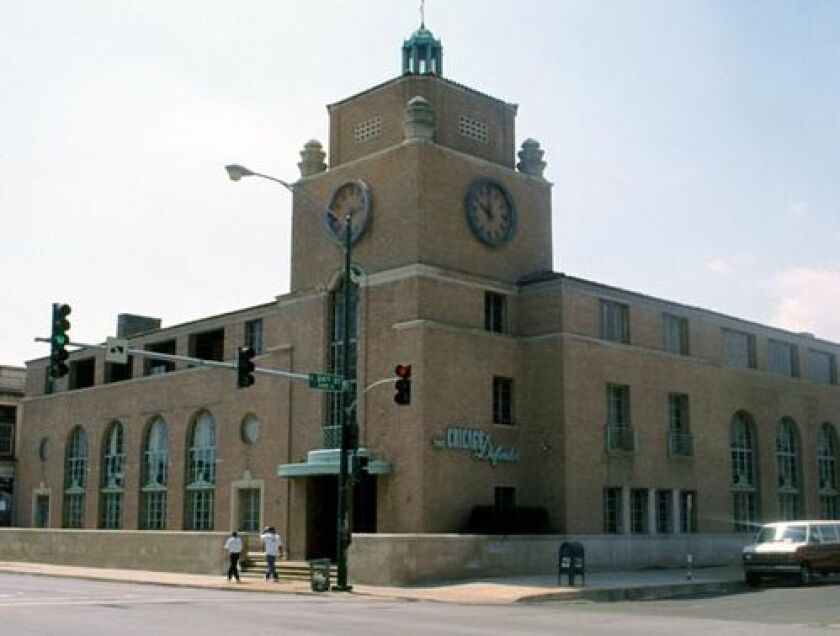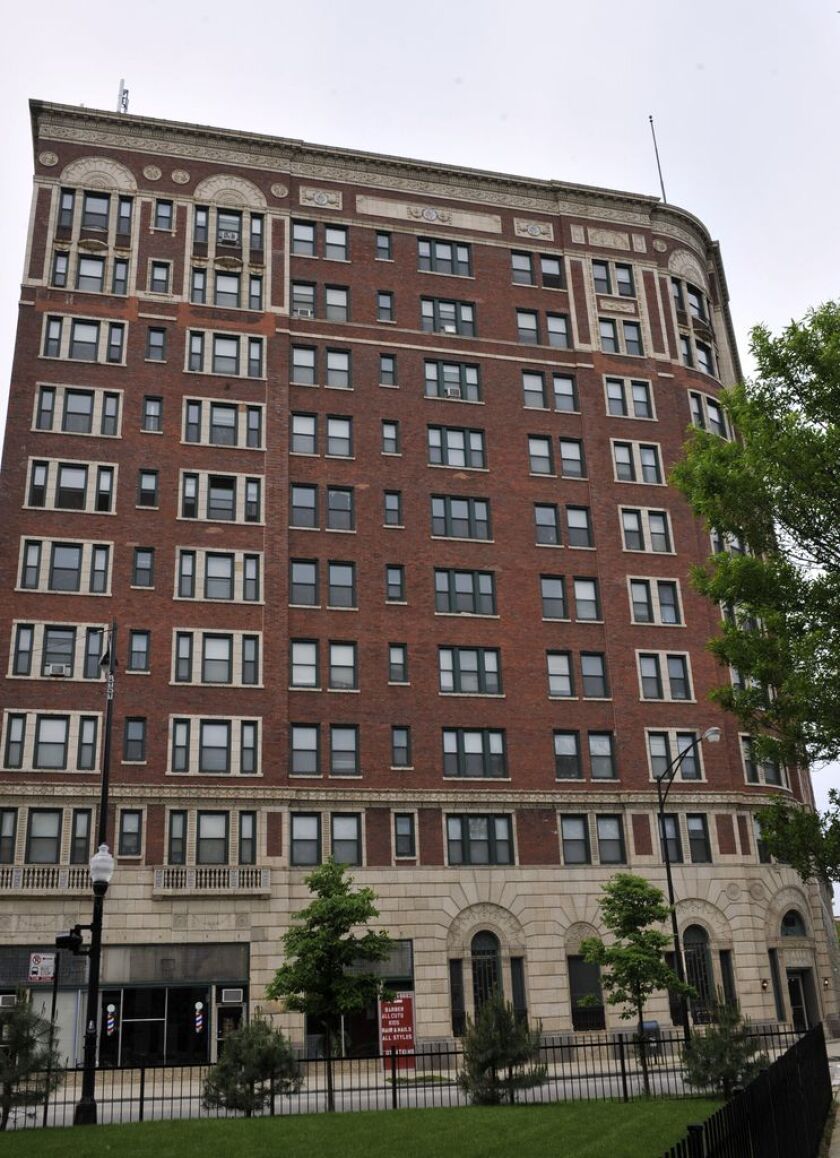A dozen years ago, five financially strapped city of Chicago pension funds invested $68 million in a shaky real estate deal put together by a former boss of President Barack Obama and a nephew of Mayor Richard M. Daley.
It was a high-risk investment. Allison S. Davis — a longtime Daley ally who once headed a small Chicago law firm that gave Obama his first job out of Harvard Law School — and Daley nephew Robert G. Vanecko even warned in the prospectus that the pension funds could lose their entire investments.
But, with Daley in office and three top officials in his administration in on the decisions, the city pension funds agreed to give Davis and Vanecko’s DV Urban Realty Partners the money, which they said they would use to buy and develop properties in struggling Chicago neighborhoods.
Eleven years ago, the Chicago Sun-Times exposed the deal, which quickly turned sour. The mayor publicly distanced himself from his nephew, whose pension deals created friction in the Daley family.
Vanecko pulled out of the partnership with Davis and his family in June 2009 — 12 days after a federal grand jury issued subpoenas for DV Urban’s records.
Three years later, the pension funds dumped Davis and seized control of the real estate portfolio DV Urban had put together, with lawsuits filed in Illinois and in Delaware.
The pension funds are now out of all of the real estate deals that Davis and Vanecko put together, which included the failed redevelopment of the former Chicago Defender headquarters and the redevelopment of a burned-out Dominick’s supermarket in Lake View that’s now occupied by a Mariano’s.
And not only did the pension funds not make a profit, records show they will end up losing a combined $54.2 million for the retirement plans, which cover Chicago teachers, police officers, municipal workers, garbage collectors and bus drivers.
On top of that, they spent $2.6 million on lawyers to fight DV Urban in court, litigation that finally came to an end last month when the retirement plans also agreed to pay $14,400 in copying fees that the company incurred during the court battles.
How much the city pension funds lost
When the final accounting is finished by year’s end, each of the five city pension plans will have lost about 80 percent of the money they invested in the Davis-Vanecko deal, according to the Chicago Teachers’ Pension Fund, which lost the most.
“Clearly, this is a bad loss — like 80 percent of the original investment,” says Charles Burbridge, who has been the teachers pension fund’s executive director for three years, long after the DV Urban deal began.
“We don’t invest money expecting to lose it,” says Burbridge. “It’s one thing not to have a positive return. But it’s a whole ’nother thing when you have negative returns and actually lose your principal . . . DV Urban’s the worst that comes to mind.”
The teachers pension fund — the first retirement plan to invest money with Davis and Vanecko — will lose $19.7 million on its $25 million deal with DV Urban.
The pension plan for Chicago police officers will lose $12 million of its $15 million investment. The city’s municipal employees retirement plan, which also invested $15 million with Daley’s nephew and Obama’s onetime boss, also will lose $12 million.
The retirement plan for city laborers — which includes garbage collectors and sewer workers — will lose $8 million of its $10 million investment. And the CTA’s retirement plan will lose about $2.4 million from its $3 million investment.
But as big a debacle as the real estate dealings were for the city employee pension funds, they turned out to be quite profitable for DV Urban, pension records show.
DV Urban put $3.4 million into the real estate deals — including money the Davis family and Vanecko borrowed from a bank that has since been shut down by federal regulators.
Like the pension funds, DV Urban lost most of its investment — about $2.7 million.
Fund managers got $9M in fees
But that was more than offset by the $9 million the company was paid by the pension funds to manage the real estate deals, which included operating two apartment buildings, as well as the firm’s “development fees” on projects that never got off the ground. The $54 million loss includes those $9 million in fees.
DV Urban “received a total of $1,181,845 in development fees for construction costs that were never incurred,” Cook County Circuit Judge Moshe Jacobius wrote in a ruling on Aug. 28, rejecting DV Urban’s bid for even more in development fees from the pension funds for the failed deals.
As the court battles dragged on, the pension funds brought in other firms to manage the real estate holdings and ultimately sell them in an effort to cut their losses. Those firms got $2.3 million in fees, which were paid for out of the pension funds’ investments.
Vanecko: ‘Bad timing’ hurt deal
Davis, 79, and his son and business partner Jared Davis didn’t return calls or emails on their dealings with the pension funds.
Vanecko, 52, wouldn’t discuss DV Urban’s real estate investments, which were all in place before he walked away from the company.
In a written statement, Vanecko said: “I left the DV Urban fund over nine years ago so I don’t think it is fair to attribute its results to me. The results of an investment are dependent on numerous factors. One of the most important is timing. DV Urban made many of its investments immediately before one of the worst downturns in history so obviously they were impacted by bad timing. Another factor is how the investments are managed after they are made. Since I left over nine years ago, I wasn’t involved in the management of the investments so I cannot comment on that factor.”
Three members of Daley’s administration — his chief financial officer Dana Levenson, City Comptroller Steve Lux and City Treasurer Judith Rice — served on the pension boards for cops and city workers, and they voted to invest money with DV Urban. Levenson, now living in Massachusetts, declined to comment. Lux, who’s now the Chicago Park District’s chief financial officer, and Rice, now an elected Cook County judge, didn’t respond to emails seeking comment.
The money that the pension funds lost exacerbates their “unfunded liabilities,” which range from $1 billion to $10 billion to pay future retirement benefits for their members.
While the $54.2 million loss amounts to only a small percentage of the pension funds’ assets, it still would, for instance, cover one year of payments for 720 retirees each getting annual pensions of $75,000. Another way of looking at it is that the $54.2 million loss is equal to all of the property taxes collected in a year from 13,500 homeowners with an average tax bill of $4,000. The pension funds get the bulk of their money from property taxes.
Toll of political ‘non-financial’ decisions
The pension funds lost money on all but one of the Davis-Vanecko deals, though it isn’t clear just how the money was lost. But, according to the funds’ records, here’s how the pension money was spent:
• $9.9 million that Davis and Vanecko put toward their $65.2 million purchase of a 344-unit apartment building at 1212 S. Michigan Ave. in September 2006. They later sold it for $65.5 million, but the pension funds got nothing from that sale.
• $2.8 million lent to two developers who bought the Chicago Defender’s former home at 2400 S. Michigan Ave. The developers — Brian O’Connell and Matthew A. O’Malley, a politically connected restaurant owner who had gotten sweetheart deals from the Daley administration to buy a building and start the Chicago Firehouse restaurant and another one to operate the Park Grill in Millennium Park — later went into foreclosure and sold the Defender building. The pension funds recovered $475,000.
“We don’t have the records to tell you what that money was spent for,” Burbridge says. “It didn’t go to develop the property, obviously.”
• $2.65 million to help buy a small commercial building at 217 N. Jefferson St. for $11.7 million in 2007. It was sold for $14.5 million in 2015, netting $4.5 million for the pension funds in what appears to have been the only deal to turn a profit.
• $6.5 million toward the $11.5 million purchase of a 162-unit apartment building with a host of code violations at 7100 S. South Shore Dr. It was sold for $6.75 million in 2015, but the pension funds got none of their money back.
• $3.5 million toward the $4.2 million purchase of stores at 3508 S. State St. as part of the redevelopment of the old Stateway Gardens housing project. It has been sold, with the pension funds getting back $1.1 million — about a third of their investment.
• $16.9 million lent to two developers who planned to rebuild a burned-down Dominick’s at 3030 N. Broadway and adjacent land at 3013 N. Waterloo Ct. The developers defaulted on a separate bank loan and filed for bankruptcy. The property eventually was developed, with businesses including a Mariano’s. The pension funds recovered $5.8 million on the deal. In a separate deal, the teachers pension fund invested an extra $5 million in the property and expects to get $6.7 million back from that, offsetting some of its DV Urban losses.
• $4.2 million to Sydney Partners, which paid $10.5 million to buy a heavily polluted warehouse and surrounding property at 3348 S. Pulaski Rd., leasing part of it to the city water department. It was sold in 2014 for $5.4 million, with the pension funds getting $1.7 million.
• $4.5 million toward the planned purchase of the National Association of Letter Carriers’ headquarters at 1411 S. Michigan Ave., just south of O’Malley’s Firehouse restaurant. DV Urban backed out of that deal but couldn’t recover its money, which the union used to build a new headquarters at 3850 S. Wabash Ave. A lengthy court battle ensued, and the pension funds got back about $42,000.
Burbridge says the teachers fund has taken steps to guard against such risky real estate deals, investing instead in “core real estate” such as existing office buildings. And its staff has been expanded to vet the companies that manage the pension fund’s money. One employee was hired to manage the real estate portfolio. And the pension plan ended its relationship with a consulting firm that signed off on the investment with DV Urban.
“We think we have controls in place to prevent it from happening again,” Burbridge says.
Laurence Msall, president of the Civic Federation of Chicago, says the DV Urban fiasco extends beyond the money the pension funds lost.
“We have insufficient oversight, and these are clear examples of the dangers of political or non-financial based decisions,” Msall says. “It’s not just the $68 million they lost, but it’s the money they didn’t make.”










